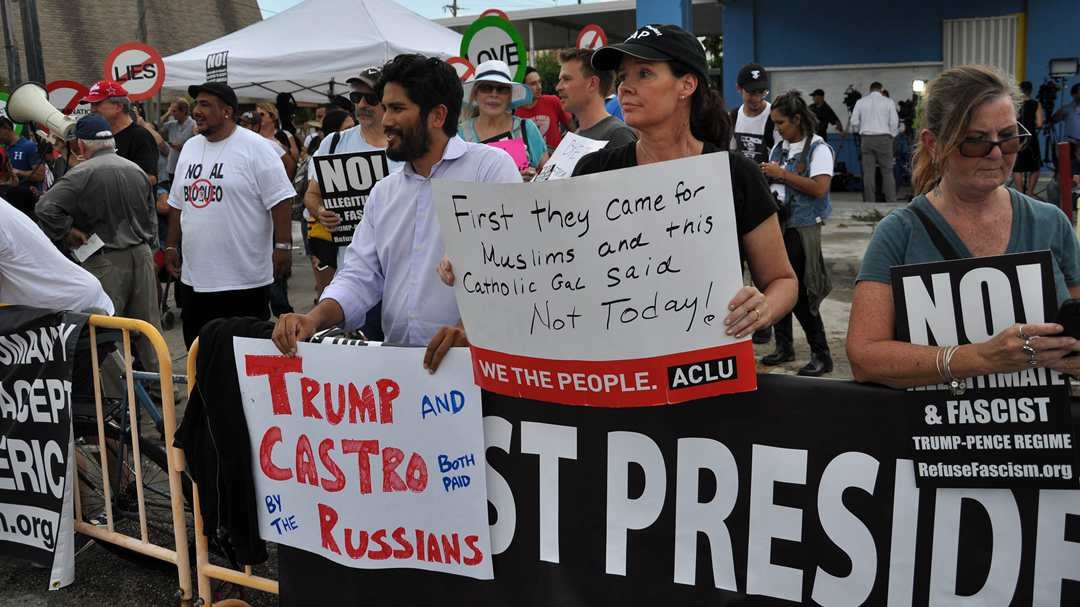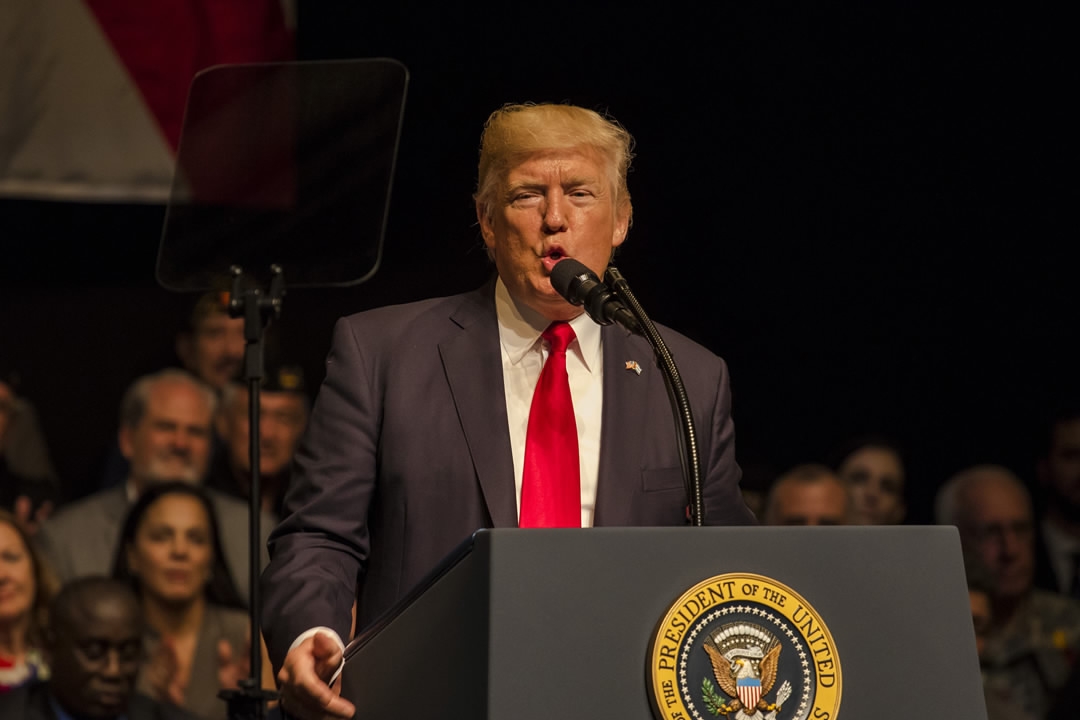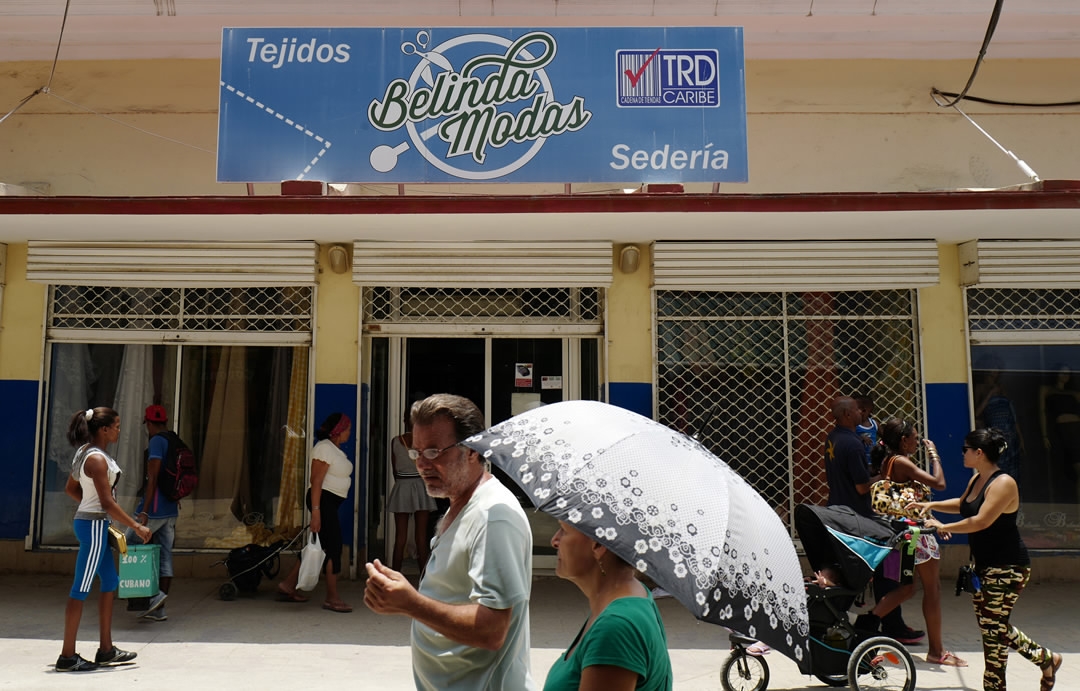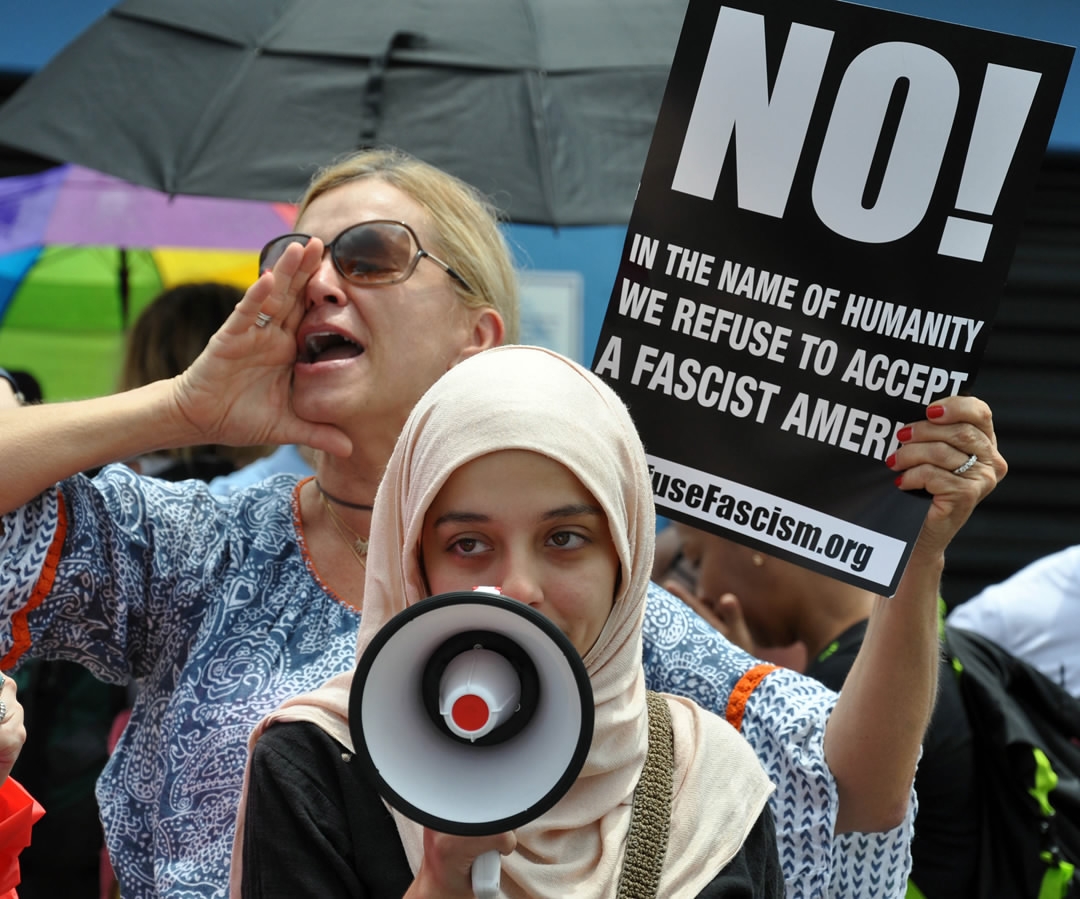
Politics
14:00, 18-Jun-2017
Cuban expert says modifying deals with US counterproductive

US President Donald Trump has signed a directive on Cuba that has sparked controversy, but one expert believes the US would be unwise to try to change agreements already signed between the two countries.

US President Donald Trump speaks about policy changes he is making toward Cuba at the Manuel Artime Theater in the Little Havana neighborhood on June 16, 2017 in Miami, Florida. /VCG Photo
US President Donald Trump speaks about policy changes he is making toward Cuba at the Manuel Artime Theater in the Little Havana neighborhood on June 16, 2017 in Miami, Florida. /VCG Photo
According to a statement by the White House, individual leisure travel, permitted by the Obama administration, will be prohibited. Americans will be required to visit Cuba with regulated tour groups.
US individuals and companies will be banned from doing commerce with Cuban businesses owned by the Cuban military. Trump also reaffirmed a decades-old US economic embargo against Cuba.

Pedestrians pass in front of a Grupo de Administracion Empresarial SA TRD retail store in Havana, Cuba, on June 16, 2017. /VCG Photo
Pedestrians pass in front of a Grupo de Administracion Empresarial SA TRD retail store in Havana, Cuba, on June 16, 2017. /VCG Photo
Trump's decision has to be understood within the context of his policy towards left-wing governments in the region, said Luis Suarez, a professor of international relations in Cuba.
"In the case of Cuba, Trump returns to the concept of trying to make negotiations from a position of strength, and ignoring the political and legal systems of Cuba, as well as the country's sovereignty and self-determination of the Cuban people," he told Xinhua.
Trump's policy seeks to apply the Helms-Burton Act, passed by the US Congress in 1996, to intensify the economic blockade on Cuba, the expert said.
It is not clear if Trump's directive would affect more than 20 agreements signed by the two countries in recent years. However, sources in the Cuban government said Havana is keen to continue joint efforts in sectors such as law enforcement, counter-terrorism, human and drug trafficking.

Opponents of US President Donald Trump demonstrate in Miami on June 16, 2017. /VCG Photo
Opponents of US President Donald Trump demonstrate in Miami on June 16, 2017. /VCG Photo
Security agencies and senior officials in Cuba said they are willing to continue cooperation with the US side, despite a sharp decline in exchanges since Trump took office in January.
"I see no reason for the Trump administration to modify the agreements signed by both countries as many of these accords are in the interests of the United States," Suarez said.
Trump's new policy tightened restrictions and put forward more complicated requirements for US citizens who want to travel to Cuba, a major setback to the policy of his predecessor Barack Obama which allowed Americans to visit Cuba individually in 12 categories, including "people-to-people contract" and "cultural and educational exchanges," he said.
In the first five months of this year, 284,565 US citizens visited Cuba within the 12 categories, almost equal to the number of Americans who traveled to the island in 2016.
Trump called for a new agreement for the normalization of bilateral relations between the US and Cuba that would "suit" both sides.
In response, the Cuban government said any strategy that is aimed at changing the political, economic and social system in the country "is doomed to fail."
"The concept of normalization of relations in the United States is not the same as we have in Cuba. For us, normalization has to go through eliminating the economic blockade, returning the territory occupied by the Guantanamo naval base as well as non-interference in our internal affairs, among other issues," Suarez said.
"The Obama administration started from the concept of considering the Cuban government as a legitimate negotiator. This administration is...questioning the legitimacy of the government itself," he added.
According to the new directive signed by Trump, the US embassy in Havana, which reopened in August 2015, will remain open. Travel by Cuban-Americans to Cuba will not be affected and remittances from people in America to Cubans won't be cut off.
Trump did not reverse Obama's decision to end the controversial "wet foot, dry foot" policy, which granted special migratory treatment to Cubans and allowed them to remain in the US as permanent residents.
(Source: Xinhua)

SITEMAP
Copyright © 2018 CGTN. Beijing ICP prepared NO.16065310-3
Copyright © 2018 CGTN. Beijing ICP prepared NO.16065310-3